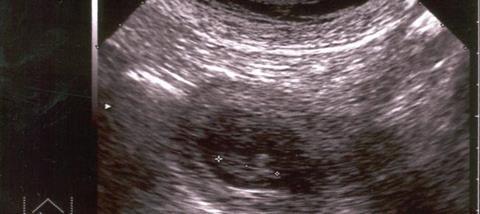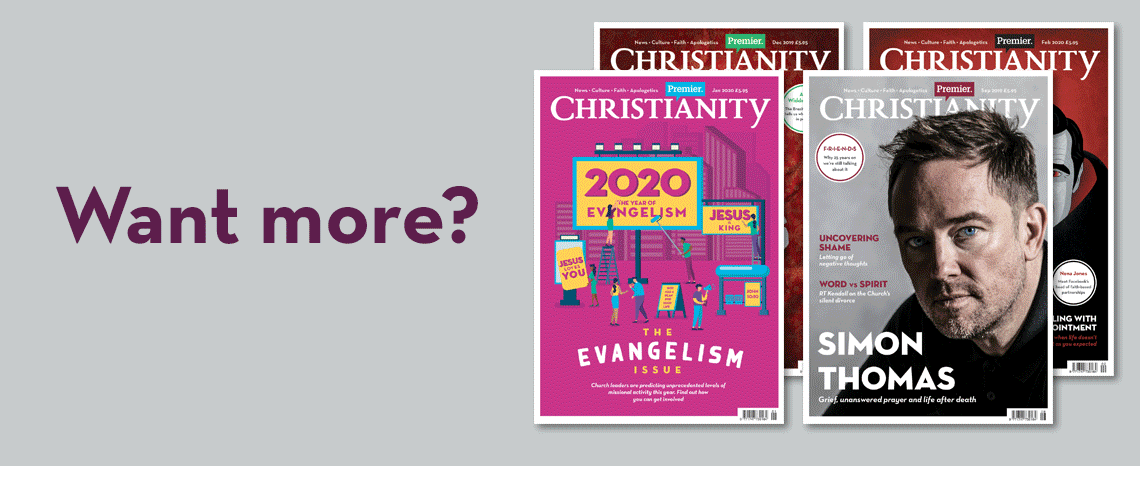
Over the last couple of years, we have seen the abortion debate come to the fore in a way that we could not have imagined even five years ago.
Last week we were told 205,295 terminations took place in England and Wales in 2018, and the subject of abortion was also debated on Premier Christian Radio's Unbelievable? programme this past weekend.
We know that 1 in 4 women will have an abortion in their lifetime and last year alone 42 million children lost their lives to abortion globally. But nothing seems to have ignited passions on both sides of the issue quite like the recent spate of laws passed in the USA.
Several US states have recently signed ‘heartbeat’ bills, making abortion illegal in almost all cases. Meanwhile, New York and Illinois have enacted laws which legalise the procedure on demand, up until birth and for any reason.
Some believe that abortion is a service we must provide, otherwise women will be forced to risk their lives in seeking illegal procedures. After all, it is argued, no-one takes abortion lightly. It’s not used as a form of contraception, and we must have compassion for women in dire circumstances. We should, according to some, divert our attention and resources towards preventing unwanted pregnancies (by pushing contraception and safe sex education), and away from trying to outlaw this ‘necessary evil’.
But to believe that abortion is a necessary (even if regrettable) evil, is to make a huge assumption - that the unborn are not people, just like you and me, made in the image of God.
Abortion is wrong because it intentionally takes the life of an innocent human being. We know the unborn are living human beings because embryology tells us unequivocally that from the moment of fertilisation, a new, genetically distinct, whole human being comes into existence. We know that smaller, less developed and more dependent human beings have no less intrinsic value than larger, more developed and less dependent human beings (otherwise, my 5-year-old would be more morally valuable than my 3-year-old!) We also know that our value as human beings does not change depending on our location. A journey of a few inches down the birth canal does not alter who and what we are.
Human from the beginning
As Christians, we have a definitive authority for our beliefs. In Psalm 139:13-14 David says “You knit me together in my mother’s womb. I praise you because I am fearfully and wonderfully made.” In Psalm 51:5-6 he goes even further. “For I was born a sinner, yes from the moment my mother conceived me. But you desire honesty from the womb teaching me wisdom even there.” Jeremiah was told: “Before I formed you in the womb I knew you, before you were born I set you apart; I appointed you as a prophet to the nations.” (1:5)
In Luke 1, just after Mary had been visited by the angel and told she would bear a son though still a virgin - she hurried to visit her cousin Elizabeth (then 6 months pregnant with John the Baptist). When Mary greeted Elizabeth, John leaped for joy in his mother’s womb and Elizabeth, filled with the Holy Spirit, said “Blessed are you among women and blessed is the child you will bear!” (v42) John the Baptist - the foetus - recognised that Mary was carrying his saviour.
We have a clear biblical mandate to love our neighbours. We cannot say that our unborn neighbours are disposable because they are smaller than us or less developed or more dependent - God has not left that interpretation open to us. Embryo, foetus, infant, toddler, teenager, adult; these are all terms that tell us how old the entity is, not what it is.
Laws should be upheld on the basis of morality. For example, we know that assault is always wrong. It doesn’t matter if the victim is conscious of what is being done to them or not. It doesn’t matter if the perpetrator is in dire circumstances, the victim of abuse themselves, or poverty or addiction. Assault is always wrong. Does making it illegal get rid of assault? Unfortunately not. We live in a broken and fallen world. But does that mean we should legalise it? Of course not! We teach our children about the horrible reality of such crimes and do all we can to make committing them unthinkable, but we enforce the law against it with everything in our power and we care for its victims.
Abortion hurts women
There are many studies linking abortion to mental health issues, increased rates of suicide and subsequent premature birth.
The largest ever quantitative synthesis and analysis of research (published in the British Journal of Psychiatry covering 22 studies and more than 800 000 women), concluded that: “Women who had undergone an abortion experienced an 81% increased risk of mental health problems”. There are 34 statistically significant studies linking abortion to an increased risk for breast cancer and numerous studies that indicate more than 50% of women who have abortions, do so because they were put under pressure to abort by family, friends and partners. We must help and support women in crisis and reach out to post abortive women with love and compassion.
Some have supported abortion claiming that criminalising it harms women as they will only be driven to seek illegal, “unsafe” abortions instead. Illegal abortions are certainly an issue but the statistics do not back up the idea that more women will die as a result. For example, in Chile, Poland and Nicaragua maternal mortality rates continued to drop after abortion was criminalised in the 1990s. The same is true for El Salvador which does have high rates of illegal abortions; fewer pregnant women died in the decade following criminalisation there in 1998, not more! The opposite is true in South Africa, maternal mortality rates actually rose after abortion was made legal in 1997. Maternal mortality rates are, in reality, far more closely linked with good overall healthcare and living standards, rather than whether or not abortion is criminalised. Furthermore, there is actually a wide body of research within the US, demonstrating that when abortion is restricted, abortion rates go down and birth rates go up - although not as much as previous abortion rates.
The right to life
There is unfortunately plenty of evidence to suggest that abortion is used as a form of contraception. Last year alone, 39% of all abortions performed in this country were repeat abortions. There is also evidence that abortion is seen by some as something to be proud of – for example, the recent Planned Parenthood sponsored “Shout Your Abortion” campaign.
We live in a fallen and broken world but we must strive to protect all of God’s children, including the weakest among us. To quote Matthew West’s fantastic new song 'Unplanned': “Every life deserves a voice / Every child deserves a chance / You are more than just a choice”.
Imagine the impact we could have if the Church stepped out of the shadows on this issue and declared, with one voice, that all human beings are equal and deserve the right to life. We might just make abortion not simply illegal but unthinkable.
Debbie Mountford holds a BSc (hons) in Human Physiology from the University of St Andrews. She previously worked in marketing and strategy for a FTSE 30 company and is now a stay at home wife and mum who volunteers for CBR UK




























